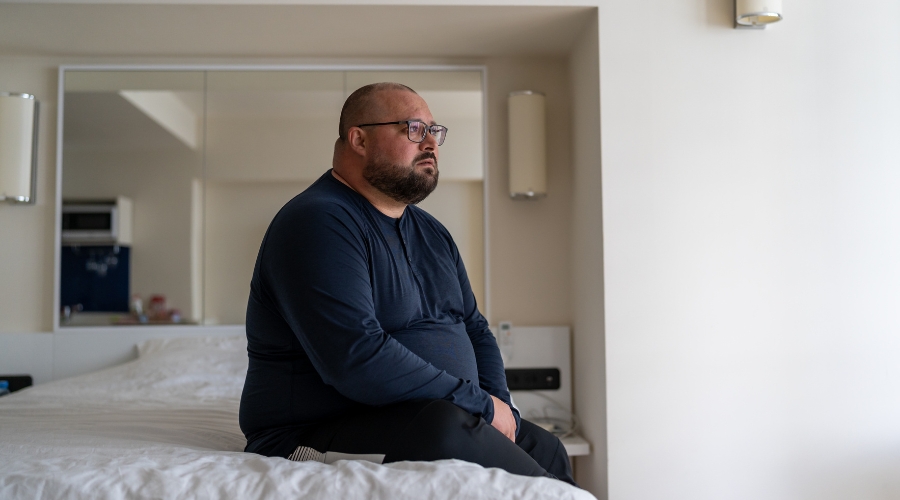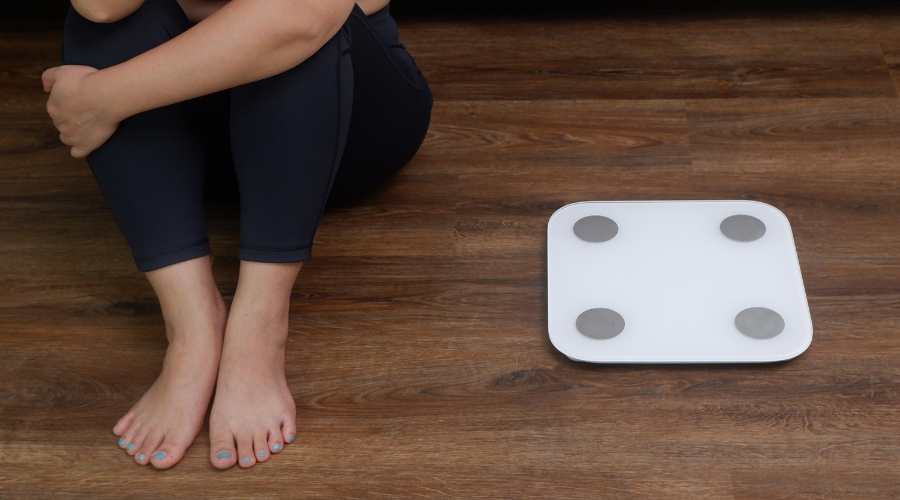“I thought I’d feel free,” she said on our call, voice cracking like glass. “I hit my goal weight, but I’ve never felt more lost.” -Coaching Client
That’s the moment the scale stopped being the hero of her story and became the beginning of a deeper journey. As a coach who’s guided dozens of post-op clients, I hear this echo again and again: the physical transformation is real. But the emotional transformation? That’s where the real work and the greatest reward lie.
You thought shedding the weight would feel like hitting the finish line-but instead, it opened the door to a whole new layer of emotions. Maybe it’s a quiet grief for the version of you that got you this far. No, this isn’t a glitch in the system; it’s your heart and mind recalibrating from decades of identity tied to size. It’s the question no one prepared you for: Who am I now, really?
Why it happens: This inner shift doesn’t mean you’ve failed; it means you’re finally facing the parts of yourself that were buried beneath survival mode. And while that can feel disorienting, it’s also a sign that you’re ready for more than just physical change.
The truth is, weight loss surgery opens the door, but emotional healing is what makes the journey sustainable. You don’t need to have it all figured out today. You just need one honest step forward. Let’s walk through a few simple, powerful ways to begin reconnecting with the version of yourself that’s been waiting to be seen, loved, and lived in beyond the scale.
5 Simple but Powerful Steps to Feel Like You Again After Surgery
1. Ask Yourself What You Really Want (That Has Nothing to Do with Weight).
Why it matters: After surgery, it’s easy to only chase smaller sizes. But your heart needs a bigger reason to heal.
Try this: Ask “If I couldn’t talk about weight loss anymore, what would I be proud of?” Write down 3 answers. Maybe it’s being more active with your kids, starting a new job, or just feeling peace in your body. This becomes your real goal.
2. Make One Small Promise to Yourself- and Keep It
Why it matters: After years of broken diet promises, trust with yourself may feel shaky. Let’s rebuild it, one win at a time.
Try this: Pick a tiny action you can do daily for just 5 minutes. Start small. Show yourself that you follow through now.
- Stretch in the morning.
- Drink a full glass of water before coffee.
- Say one kind thing to your reflection.
3. Find People Who Get It- Not Just Cheerleaders.
Why it matters: Not everyone understands the mental weight of surgery. You need people who get both the joy and the grief.
Try this: Join a group (online or in-person) where real conversations happen about loose skin, new habits, and hard days. If you’re in one already, ask: “Can we talk about what healing emotionally looks like for us?”
4. Talk to Yourself Like You Would a Friend.
Why it matters: That little voice in your head? It needs to be your biggest supporter, not your bully.
Try this: Catch yourself when you say things like: “I’m still not good enough,” or “I messed up again.” Then ask, “Would I say this to my best friend?”If not, change it. Say instead, “I’m learning. I showed up today.”
5. Ask for Help When You Feel Stuck.
Why it matters: Surgery fixes your stomach, not your stress. Support from a coach or therapist helps you stay strong mentally.
Try this: Notice if you’ve been avoiding hard feelings with food, shopping, or scrolling. That’s your sign to talk it out. There’s no shame in needing help. Getting support is a strength, not a weakness.
Bonus Step: Remember This…You’re not broken. You’re rebuilding, and you’re allowed to take your time, change your mind, and figure things out one honest step at a time.
Final Thought: You Are Not a Project- You Are a Person
It’s okay if you still have hard days. It’s okay if you don’t know exactly who you are yet. The work isn’t to “fix” yourself, it’s to meet yourself with curiosity, compassion, and maybe a little classy sass when needed. The scale may have measured your progress, but your life measures your healing. Go live it boldly.
Author: Charlene Holmes, BSC Expert Contributor & Certified Trauma-Informed Life Coach











